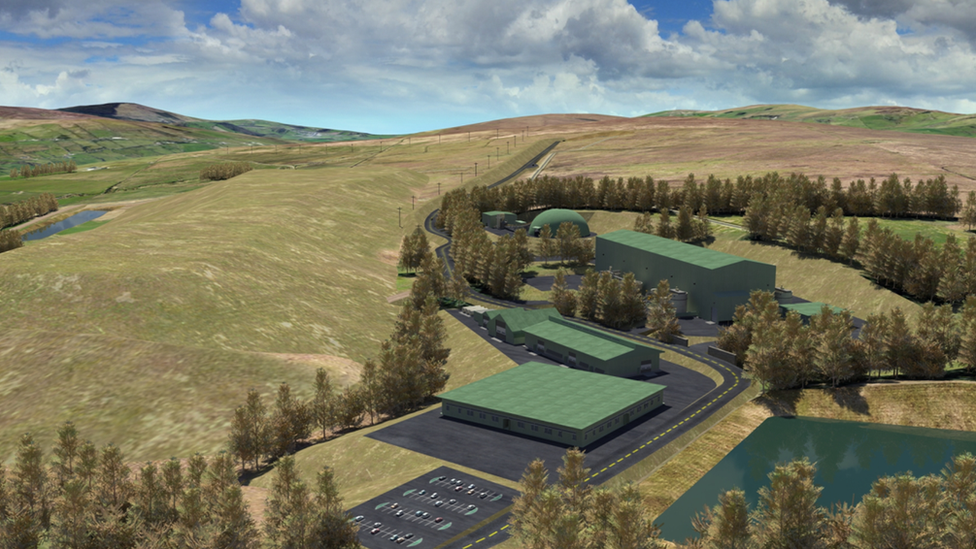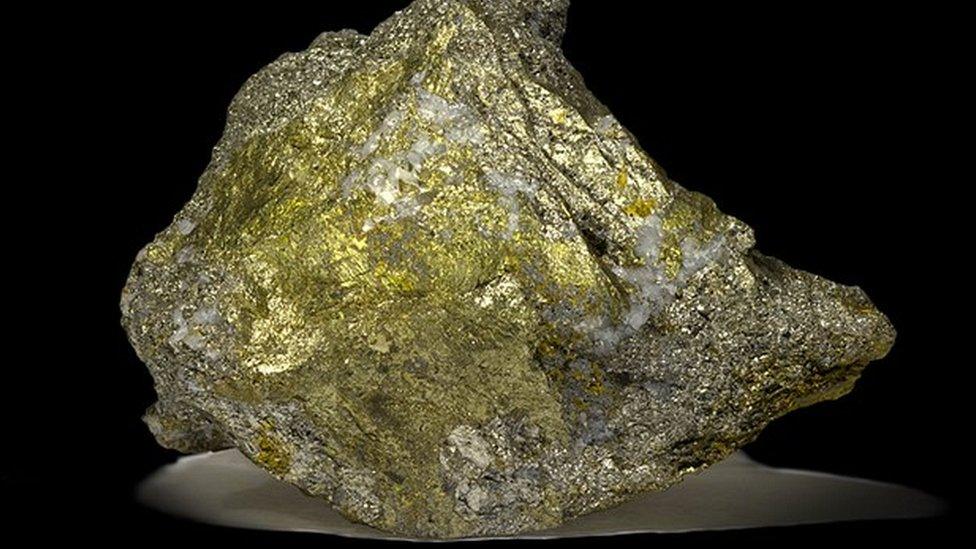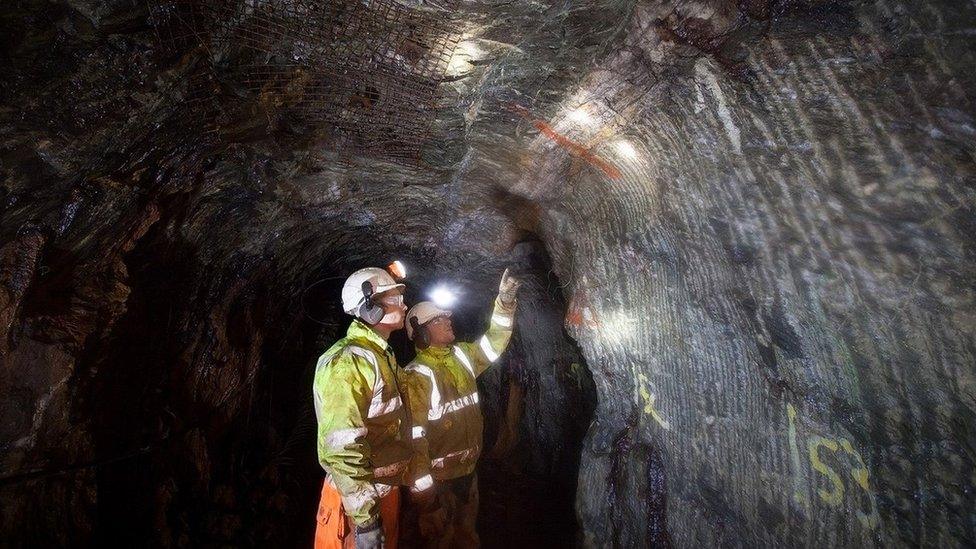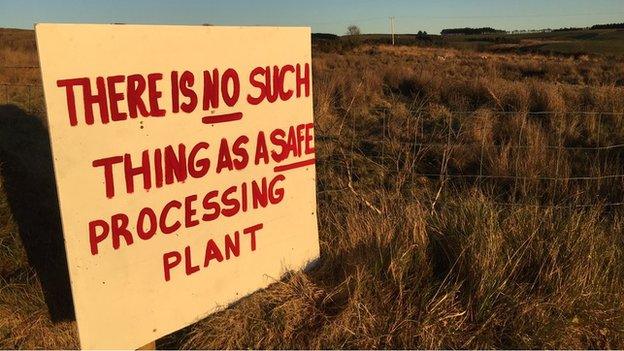Dalradian seeks planning for major gold mine in Tyrone
- Published

Dalradian says there are designing a safe project, meeting and exceeding all regulations
A planning application has been made to operate a major gold mine in Tyrone for 25 years, supporting 350 jobs.
The 10,000-page application is one of the biggest ever lodged and is controversial, with opposition to the mine on environmental grounds.
The moves comes after seven years of exploratory work by Canadian firm Dalradian in an area of the Sperrins near Greencastle.
It said the mine would be "economically transformative" for County Tyrone.
Described as "one of the best gold projects on the planet", the area is said to hold $4bn (£3bn) worth of deposits.

A sample from the Curraghinalt gold deposit
The cost of developing the mine is £125m and if permitted would involve unearthing 1,500 tonnes of rock a day from underground tunnels.
A diluted cyanide solution would be used to separate tiny gold particles from a portion of the crushed ore.
'Short-term wealth'
Dalradian's chief executive, Patrick Anderson, said: "This is an exciting day for Dalradian and Northern Ireland.
"It is expected to give $1bn (£750m) boost to the local economy over the 25-year life of the mine."

It could take up to two years for a planning decision to come from the Department for Infrastructure
However, environmental groups will fight the application.
Cormac McAleer, from Save Our Sperrins, said one of the group's concerns was potential water and air pollution from the use of cyanide.
"We have a massive resource in Curraghinalt in terms of archaeology and sadly this company would do away with that for the sake of short-term wealth for a very small number of people," he said.
Mr Anderson said: "We are designing a safe project, meeting and exceeding all regulations."
It could take up to two years for a planning decision to come from the Department for Infrastructure and the process will likely involve a public inquiry.
- Published8 December 2016
